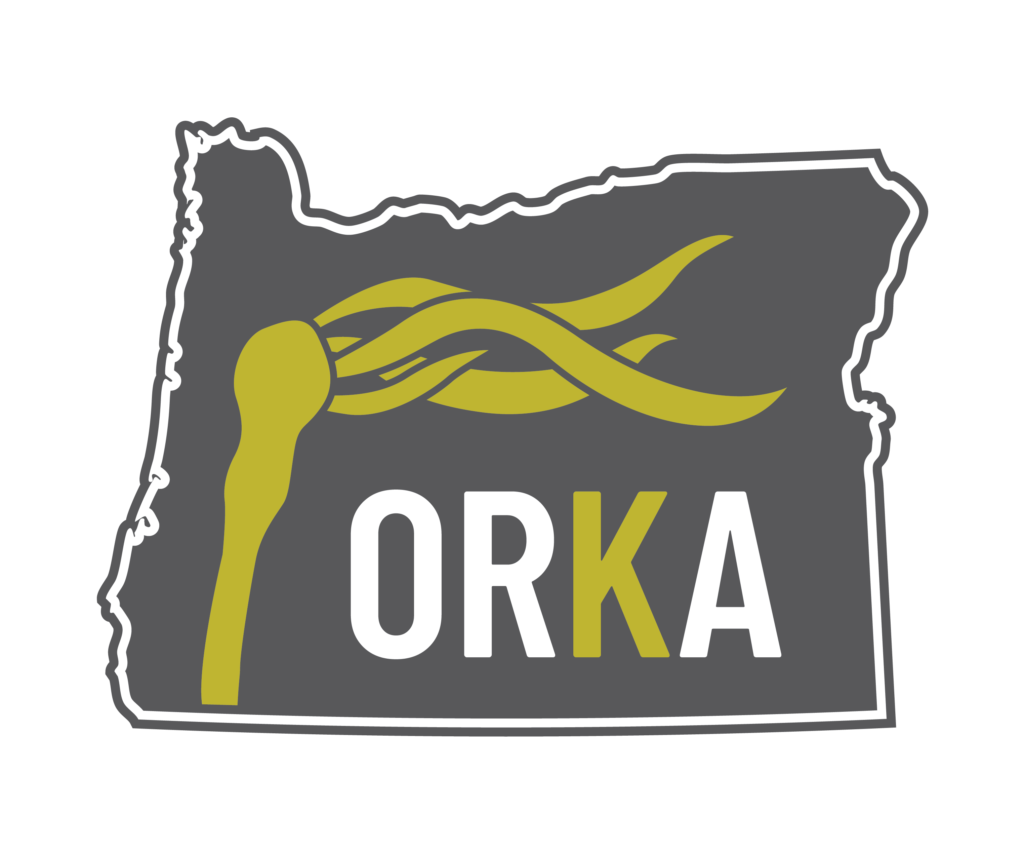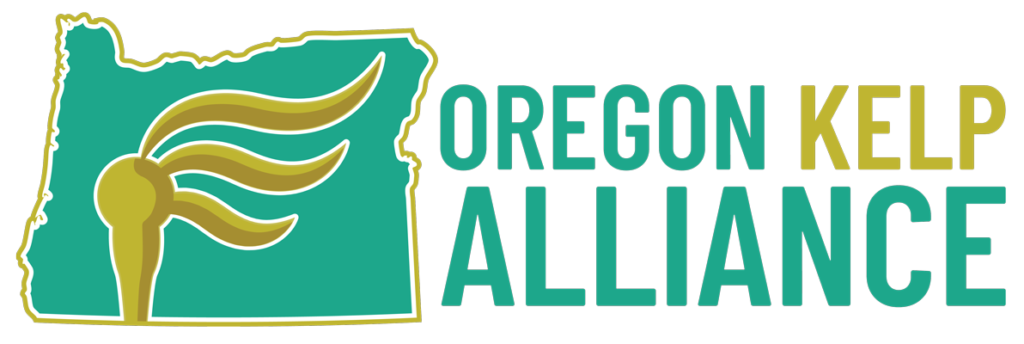
The Oregon Kelp Alliance (ORKA) represents diverse interests in kelp forest ecosystems, and includes commercial urchin divers, researchers, managers, conservationists, tribal members, tour guides, sport divers, chefs, and other community members in support of healthy kelp forests.
The Problem
Around the globe, evidence has emerged in recent years concerning the global drivers affecting kelp forests at multiple scales. In addition, local stressors and regional variation in the effects of these drivers dominate kelp dynamics. In certain areas, disappearance of important kelp forest populations is drawing attention from the scientific community, natural resource managers, commercial divers and fishermen, tribal members, sport divers, ecotourists and the businesses who serve them, and coastal communities.
More recently, studies have revealed the rapid climate-driven catastrophic shift in 2014 from previously robust kelp forests to unproductive large scale urchin barrens in northern California, an ecoregion bearing many similarities to that found on the southern coast of Oregon. Most recently, the Oregon Department of Fish and Wildlife, in collaboration with commercial urchin divers, completed a survey of sea urchin populations at Orford Reef, reporting a preliminary estimate of ~350 million purple sea urchins, a more than 10,000-fold increase on this single reef since 2014.
Port Orford has been Oregon’s sea urchin capital since the initiation of the fishery here in the early 1990’s. In recent years, career urchin divers brought attention to the purple sea urchin population boom and bull kelp forest declines. Urchin divers have worked with ODFW shellfish biologists to monitor and survey urchin populations for years prior to these more recent events. More recently, the emergence of a local ecotour business, and the establishment of the Port Orford Field Station, operated by Oregon State University, has led to an increase in investigation of kelp forest ecology and health, particularly along Oregon’s southern coast. These investigations, developments, and observations led to the establishment of the Oregon Kelp Alliance (ORKA). With support from Oregon Sea Grant, ORKA has continued to develop and support collaborative projects to enhance our understanding of kelp forest changes and experimental kelp forest regeneration. ORKA recently received a permit from ODFW to launch an experimental kelp restoration project at 5 sites from Cape Lookout to the North, to Macklyn Cove in Brookings to the South. This project will cull sea urchins to promote kelp restoration, and includes surveys and monitoring in partnership with Reef Check Oregon. The Oregon Kelp Alliance is also exploring other approaches to promoting kelp forest health in coordination with other groups engaged in similar work along the west coast, and around the world. Sign up for our mailing list to receive updates and follow us on social media.
Who is ORKA?
Partners and co-sponsors
Oregon Sea Grant
Oregon Sea Grant is supporting the Oregon Kelp Alliance with a program development grant to promote coordination and development of pilot kelp restoration projects.
Oregon Coast Visitors Association
OCVA is providing support for the development of outreach and educational materials to advance the work ORKA is doing to promote healthy kelp forests in Oregon.
Oregon Sea Farms
Oregon's commercial urchin divers, dulse farm operators, launching urchin ranch operation in collaboration with ORKA.
The Nature Conservancy
PMEP-funded project to conduct kelp survey work in the study area to identify candidate areas for targeted bull kelp restoration.
South Coast Tours
Ecotour operations to include volunteer opportunities as part of potential restoration projects.
Port of Port Orford
Seafood Hub redevelopment project to includes redevelopment of seawater pump ashore system to support mariculture operations. Oregon Sea Farms and Oregon State University are potential tenants of new facility.
Wild Human
Wild Human is working with ORKA to tell the story of what drove the formation of the Oregon Kelp Alliance and what they are doing to promote healthy kelp forests in Oregon. Follow Wild Human on instagram @wild_human_pnw
Oregon State University - Port Orford Field Station
Marine Studies, Food from the Sea, Aquaculture, and Blue Economy Initiatives all potentially intersect with project. Geospatial Ecology of Marine Megafauna (GEMM) Lab is analyzing bull kelp, sea urchin populations in areas of interest and/or potential candidate areas for targeted kelp restoration projects.
University of Oregon - Oregon Institute of Marine Biology
Kelp forest ecology research with a focus on food webs and algae/invertebrate interactions. Capacity to support subtidal surveys of kelp restoration pilot project and associated research.
Elakha Alliance
Currently exploring potential reintroduction of sea otters in Oregon, with interest in kelp forest health, and implications regarding sea urchin populations.
Oregon Department of Fish and Wildlife, Shellfish Program
Natural resource management and permitting, monitoring and surveys of urchin and abalone populations.
Oregon Department of Land, Conservation, and Development (DLCD)
Managing revisions to Territorial Sea Plan section on Rocky Habitat, including submerged aquatic vegetation (kelp) policy, with restoration and mariculture opportunities.
Ocean Acidification and Hypoxia Coordinating Council
Interest in monitoring ocean chemistry as part of potential restoration project.
Oregon Coast Aquarium
Since opening in 1992, the Oregon Coast Aquarium has been an enduring advocate for the health of our ocean, supporting marine conservation and stewardship through education programs, community partnerships, and rehabilitation efforts.
Kelp Restoration
Members and partners of the Oregon Kelp Alliance (ORKA) are now working on an experimental kelp restoration project, under a scientific take permit developed in collaboration with shellfish biologists from ODFW, which recently issued the permit. This experimental project aims to reduce sea urchin densities in 5 experimental areas enough to promote kelp regeneration. The project includes baseline surveys to determine sea urchin and kelp abundance and density, and will also measure red and flat abalone and sunflower sea stars, other important members of the kelp forest ecosystem. This project is part of a comprehensive strategy to promote kelp forest health, including monitoring and research of kelp forest ecosystems, ocean chemistry and other environmental variables, targeted removal and culturing of purple urchins, community science, tribal engagement, and education opportunities.
ORKA is currently planning a kick-off event in Port Orford, at Nellie’s Cove, located at Orford Heads, one of the experimental study sites. We will strive to establish and maintain oases of kelp that could promote kelp forest restoration under more favorable conditions in the future. These pilot projects will also provide opportunities to enhance our understanding of kelp forest ecosystems and changes happening now and in the future.
If you have any comments or questions, please submit them below and we will respond as soon as we are able.
